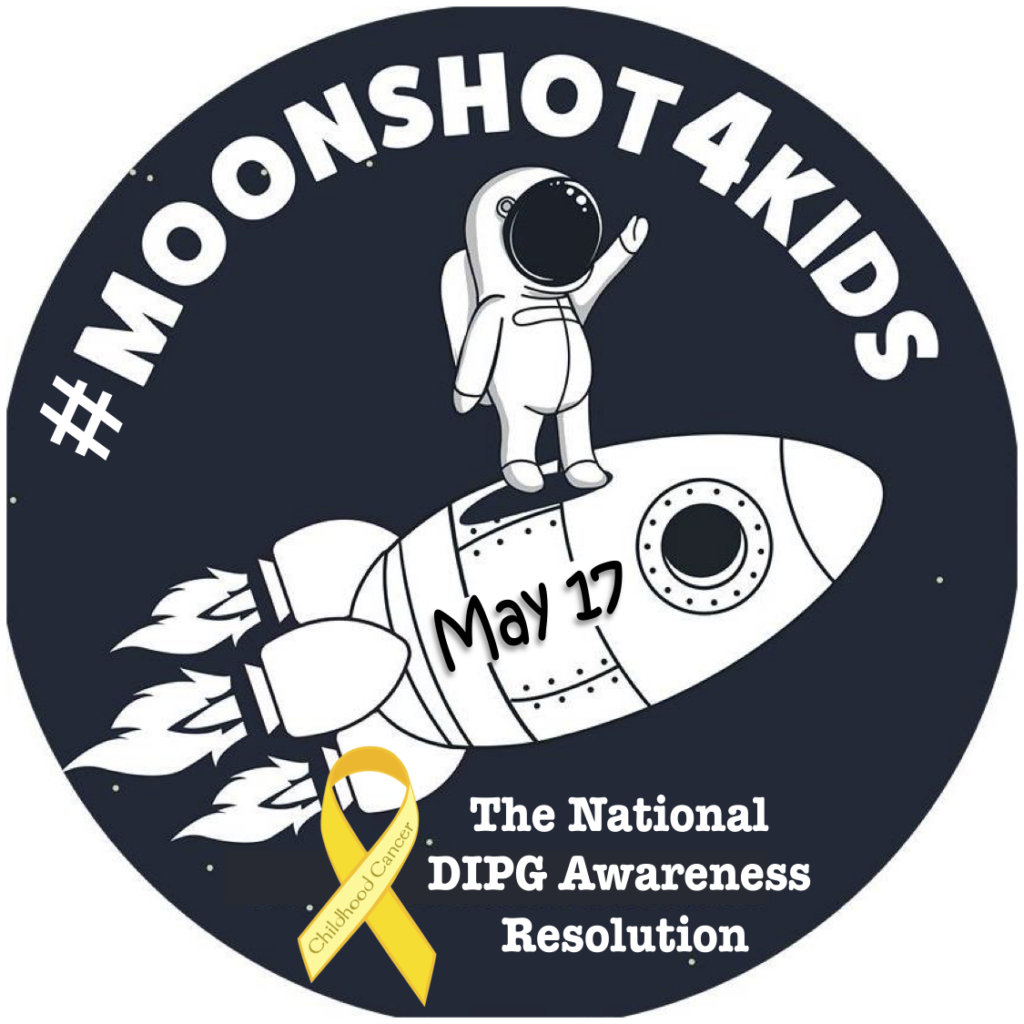
The Opportunity to Help A Voiceless Population Where Others Cannot.
Merits of H. Res. 404, The National DIPG Awareness Resolution
November 7, 2022
To the Honorable Previous Co-Sponsors of the DIPG Awareness Resolution, and Staff:
Thank you for taking a few minutes to consider renewing your support for the DIPG Awareness Resolution, H. Res. 404, which is unchanged from last Congress. Brain cancer, the leading cause of cancer-related death in children in the United States, remains for the American public and Congress a largely unknown tragedy. To alert, educate, and end obscurity for the suffering and lack of adequate support for our children, H. Res. 404 uses the powerful example of diffuse intrinsic pontine glioma (DIPG), the second most commonly diagnosed brain tumor in children and the deadliest, as an Ambassador for Childhood Cancer as such.
With national narratives of billions invested in NIH and the hope of St. Judes, great progress for adult cancers and success for some childhood leukemias, the public is largely unaware that most childhood cancers have no effective treatments and that brain cancer continues to kill more children than any other type. On its own, DIPG is responsible for a significant portion of the annual childhood cancer death toll, yet there has been no change in the standard treatment protocol nor its terminal prognosis since Neil Armstrong’s daughter Karen died of it in 1962.
How can this be, in the wealthiest country in the world with the greatest technology? The medical research investment culture prioritizes investor and institutional goals before the needs of our children, to the effect that parents typically hear, “it’s one of those sad, rare, orphan things,” and that no one wants to invest in their child’s cancer. This is an unacceptable reality. Quite simply, with H. Res. 404 we are asking you to lend your unique power to draw attention to a truly voiceless and vulnerable population where we parents remain helpless to save our children or to reduce their suffering as they die.
Awareness is crucial; tragically yet predictably, 2800 more children have been lost to DIPG alone since the first introduction of the resolution in 2016. And despite much progress made in childhood cancer legislation over the last decade with Creating Hope, RACE, STAR, and Gabriella Miller Kids First, virtually nothing has changed for children with DIPG and other brain cancers. Our children continue to fight a death sentence, unarmed in an invisible war which we parents witness in all helplessness to save them, the doctors unable to save them. Awareness is the needed catalyst, and you can make it happen!
With your renewed support, the resolution can be scheduled finally—truly a historic opportunity for a resolution of its kind—and with the increased attention, the opportunity to work its magic in attracting a cure more quickly. For a downtrodden and bereaved population, many unable to speak to their experience and very few advocacy operatives, this is quite a feat in our 7th year; its repeatability, uncertain. You can literally make history for children with cancer, this Congress.
Please consider lending your signature and join Congresswoman Dingell (D-MI-12), Congressman Joyce (R-OH-14), and Congressman McCaul (R-TX-10), Chairman of the Childhood Cancer Caucus, and the other 216 supporters to recognize the urgent, unmet medical needs of children in America. The ultimate recognition of the House of Representatives will speed solutions, facilitate childhood cancer legislation and policy, morally support kids fighting for their lives, and set an important precedent for unification and leadership in caring for children in our society today. Please have your staff contact Meg Makarewicz with Congresswoman Dingell’s office, [email protected], or Will Mascaro with Congressman David Joyce’s office, [email protected]. Thank you for your time and consideration.
Respectfully yours,
- DIPG Advocacy Group
- Janet Demeter, Organizer and Founder
- Paul Miller, Co-Founder
- Marcelo Ramalho-Ortigao PhD
- Science and Medical Advisor
Childhood Brain Cancer Briefing Video
Program of presenters with time-stamps